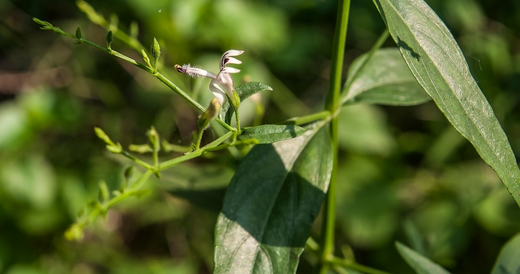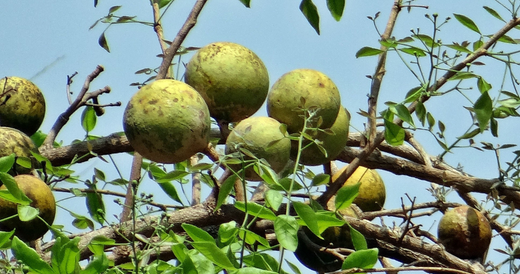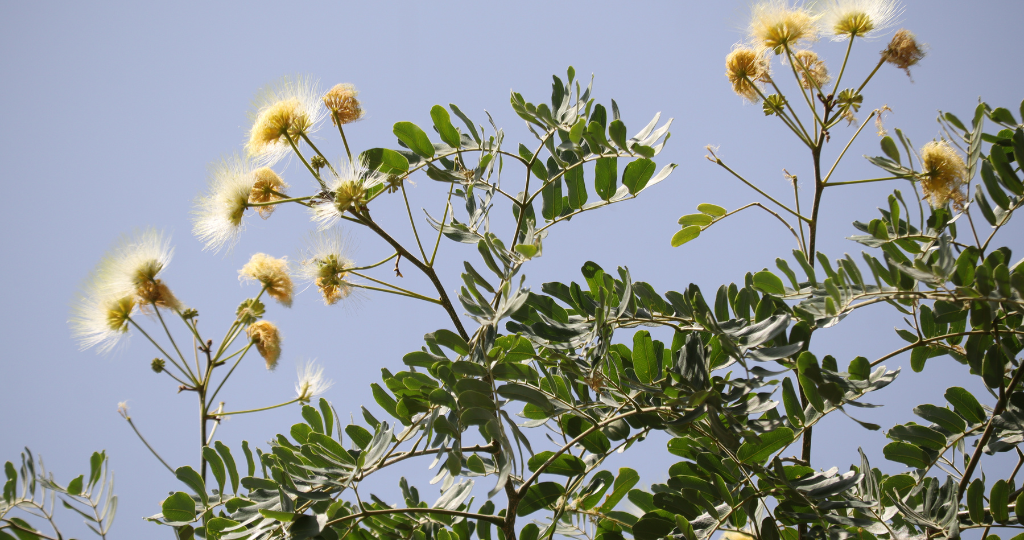An Introduction to Kalmegh
Kalmegh, also known as Andrographis paniculatalt, is an annual herb native to India and Sri Lanka that has been used in Ayurvedic medicine for centuries. Known as the "king of bitters," kalmegh has a bitter taste but provides excellent health benefits.
-
Hindi Name: Kalmegh
-
Latin Name: Andrographis paniculataIt
-
Sanskrit Name: Bhunimbh
-
English Name: Kalmegh
Evidence-Based Benefits of Kalmegh Herb
Here are some health benefits of Kalmegh:
-
Anti-inflammatory - Studies show kalmegh has anti-inflammatory properties that can help treat multiple inflammatory conditions.
-
Antioxidant - The herb contains high levels of antioxidants like andrographolide, protecting the body from oxidative stress and damage.
-
Liver Protection- Kalmegh stimulates bile secretion in the liver, improves liver function, and even helps regenerate liver tissue.
-
Anti-cancer - Early research indicates andrographolide in kalmegh can inhibit cancer cell growth and induce cancer cell death.
-
Antimicrobial - Kalmegh demonstrates antibacterial, antiviral, and antifungal activity against many disease-causing pathogens.
-
Fever Reduction - As a traditional Ayurvedic remedy, kalmegh has long been used in India to bring down fevers effectively. You can also check Ayurvedic range of medicines for fever, cold, etc.
-
Diabetes Management - Animal and human studies suggest kalmegh can lower blood sugar levels and support diabetes treatment.
-
Digestive Aid- Kalmegh increases gastric juice secretion to improve digestion, reduces intestinal spasms and gas, and prevents ulcers.

Source: Canva
1. Kalmegh for Inflammatory Conditions
Kalmegh contains the potent compound andrographolide, which research shows has anti-inflammatory and immune-modulating properties. Specifically, kalmegh extracts reduce inflammation markers, suppress autoimmune reactions, and activate antioxidant defenses. This makes kalmegh potentially beneficial for reducing inflammation underlying arthritis, infections, wounds, allergies, IBD, and even autoimmune disorders.
Other Plants
2. Kalmegh as an Antioxidant
In addition to andrographolide, kalmegh is rich in other antioxidants like flavonoids that combat oxidative stress. Oxidative stress implies cellular damage caused by free radicals and is central to aging and disease. As an antioxidant, kalmegh extract helps preserve crucial cell constituents and protects organs like the liver, kidneys, and brain cells from free radical harm.
3. Kalmegh for Liver Health
kalmegh strongly promotes liver health in multiple ways - it stimulates bile acid secretion to improve digestion and eliminate toxins. It also boosts levels of necessary liver enzymes, signifying improved hepatic function. Kalmegh even assists liver regeneration by stimulating protein and nucleic acid synthesis in liver cells after toxic injury or infection.
Also, check our scientifically proven Liver care tablets which contains the goodness of Kalmegh herb.
4. Kalmegh as an Anti-Cancer Agent
Test tube and animal data indicate the andrographolide in kalmegh suppresses the growth and spread of specific cancer cells like leukemia, colon, prostate, breast, and ovarian cancer. Andrographolide induces cancer cell death by interfering with cell communication pathways that propagate malignant cells.
5. Kalmegh for Fighting Fever

Source: Canva
Traditional Ayurvedic medicine has long used kalmegh as a natural fever reducer. Compounds present in the herb limit the production of inflammatory mediators (cytokines), which promote fever generation. This helps lower body temperature in infectious fevers.
6. Kalmegh for Diabetes Management
Human and animal studies show kalmegh extracts lower blood glucose levels and boost insulin secretion and sensitivity. Though not a replacement for standard treatment, kalmegh appears to help manage high blood sugar in diabetes when taken along with other diabetic medication.
7. Kalmegh for Healthy Digestion
Kalmegh increases secretion of bile acids and gastric juices, leading to better digestion of food. At the same time, its antispasmodic action helps relax intestinal muscles, alleviating cramps, bloating, and constipation issues. The herb also protects the GI lining and stimulates gut-friendly microbe growth.
Other Plants
Nutrition Facts of Kalmegh
|
Essentials
|
Components
|
Purpose
|
|
Andrographolides
|
Andrographolide, neoandrographolide
|
Anti-inflammatory, anticancer, antioxidant
|
|
Flavonoids
|
Oroxylin A, wogonin
|
Antioxidant, liver protective
|
|
Polysaccharides
|
Dextrins, mucilage
|
Immunity boosting
|
|
Diterpenoid lactones
|
Deoxyandrographolide
|
Anti-inflammatory
|
|
Phenolic acids
|
Chlorogenic & caffeic acid
|
Antioxidant, anti-inflammatory
|
|
Minerals
|
Iron, calcium, phosphorus, zinc
|
Enzyme function & metabolism
|
|
Vitamins
|
Vitamin C & E
|
Immunity & antioxidant support
|
|
Alkaloids
|
Diterpene, kalmeghin
|
anti-inflammatory properties
|
The key bioactive components in kalmegh like andrographolides, flavonoids, vitamins and minerals contribute towards its medicinal properties as an anti-inflammatory, antioxidant, anti-cancer, hepatoprotective, antimicrobial, antipyretic and immunomodulator.
In addition to this, now you can buy our 100% Ayurvedic Kalmegh medicines at the best price from our authorised website "zanducare.com".
How Does Kalmegh Work for Health-Related Issues?
Kalmegh contains active plant compounds like andrographolides, polyphenols, vitamins, etc. These phytochemicals work together to exert powerful effects in the body. For one, they exhibit strong antioxidant and anti-inflammatory activities that help restrict cell and tissue damage underlying many diseases.
Furthermore, they stimulate protective enzymes, reduce pro-inflammatory chemicals, and enhance liver function and immunity too.
So kalmegh extracts rev up our cellular defense and self-healing mechanisms to alleviate the infection, curb abnormal inflammation, tackle toxins and keep organs functioning smoothly!
Top Uses of Kalmegh

Source: Canva
- As a Tea
- Herbal Supplements
- Tinctures
- Powder in smoothies
Facts About Kalmegh
- Kalmegh has scientifically validated medicinal effects backed by research.
- WHO verifies its anti-inflammatory, anti-cancer, and hepatoprotective properties.
- Centuries of traditional Ayurvedic usage underpins kalmegh’s safety.
- Standardized extracts ensure consistent doses of active andrographolides.
- Kalmegh treats modern, inflammatory disorders, not just infections.
- Sparing solubility makes therapeutic concentrations easily achievable.
Myths About Kalmegh
- Kalmegh is too heating for the body
- It causes excessive bitterness and gastritis
- The herb has sedative side effects
- Kalmegh reduces libido and fertility
Tips on Growing Kalmegh at Home
To grow kalmegh at home, start with quality seeds or seedlings in well-draining soil. Choose a sunny spot and water consistently, ensuring the soil stays moist but not waterlogged. Prune the plant constantly to encourage bushier growth. Kalmegh thrives in warm temperatures, so protect it from cold drafts. Fertilize sparingly, as it doesn't require heavy feeding. Keep a check on pests and address them promptly. With these tips, you can cultivate a thriving kalmegh plant at home, enjoying its medicinal benefits while adding a touch of green to your space.
Our Thoughts
Cultivating the Kalmegh plant, also known as BhuiNeem, offers a valuable addition to your home garden, providing access to a potent Ayurvedic herb. With its diverse medicinal properties, from anti-inflammatory to antimicrobial, growing Kalmegh empowers individuals to incorporate natural remedies into their well-being practices, fostering a holistic approach to health.
Best Place to Buy Kalmegh Supplements and Oil
When it comes to Ayurvedic formulations featuring the herb Kalmegh, one of the leading brands to trust is Zandu's "Kalamegha Pure Herbs" supplement.
This tablet preparation from Zandu leverages the power of standardized and purified Kalmegh plant extracts. The key bioactive compounds called andrographolides are concentrated from Kalmegh (known botanically as Andrographis paniculata) using state-of-the-art extraction and testing protocols. This ensures maximum therapeutic potency.
FAQs
Q1. Does kalmegh interact with any medications?
Kalmegh can be safely taken with most medications. However, it’s best to consult a doctor if you take immunosuppressants, blood pressure medicines, or diabetes drugs as kalmegh’s effects may interfere.
Q2. Can kalmegh supplements be taken long-term or only for acute illnesses?
Kalmegh can be taken regularly for its immune-boosting and organ-protective effects. Studies show its active compounds are safe for long-term daily supplementation, especially standardized extracts.
Q3. Is it safe to drink kalmegh tea while breastfeeding?
While kalmegh is all-natural, breastfeeding moms should exercise caution about taking it without medical guidance as it’s unclear if compounds pass into breast milk. Stop if digestive issues develop.
Q4. Should people with gastritis or acid reflux avoid kalmegh due to its bitter properties?
Surprisingly, kalmegh improves many types of indigestion despite being bitter. Its antispasmodic action relieves cramps, spasms, gas, etc. However, very high doses may temporarily aggravate existing GI ulcers.
Q5. What's the best way to get benefits without drinking it? Are capsules as effective?
The good news is kalmegh capsules, powder or tablets provide the same benefits more conveniently without the intense bitter taste! Standardized extracts in oral supplements ensure optimal andrographolide content.












1 comment
Provide thees syrup for my use. Suggesting freiends, readers to avoid Dulcoflex tabs/ anal suppositories, they are habit forming.
Rafique Kazi
Leave a comment
This site is protected by hCaptcha and the hCaptcha Privacy Policy and Terms of Service apply.